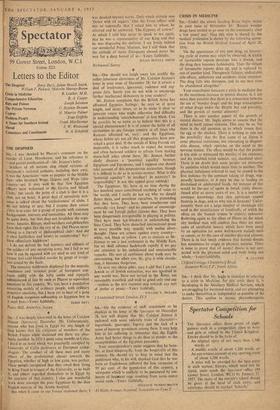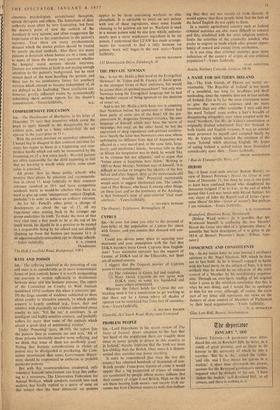Stn,—I think that Mr. Inglis is mistaken in referring to
a crisis in Medicine., for any crisis therd is, is developing in the Auxiliary Medical Services, which are struggling for increased status, and are attempting to make themselves as independent as possible of the doctor. This applies to nurses, physiotherapists,
almoners, psychologists, occupational therapists, speech therapists and others. The limitations of their authority must often be very frustrating, but from the doctor's point of view the outlook of the Auxiliary is very narrow, and often exaggerates the importance of his or her.contribution to the patient's recovery. Thus there are many psychosomatic diseases which the doctor prefers should be treated by purely physical methods. Also there arc many patients in hospitals whine homes are in a mess, and in many of these the doctor may question ,whether the hospital social services should intervene. Doctors are sometimes at fault in not paying enough attention to the patient's background, but he must remain head of the teams handling the patient, and there can be • no satisfactory future for auxiliary services which attempt to become independent of, Or are disloyal to, his leadership. These auxiliaries can, however, greatly influence events by systematically submitting short, written reports for the doctor's consideration.—Yours faithfully,















































 Previous page
Previous page